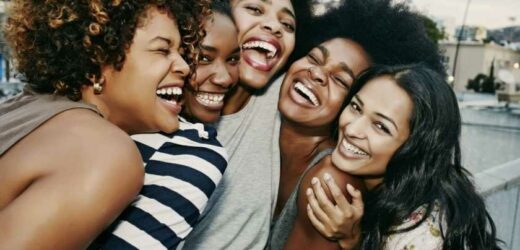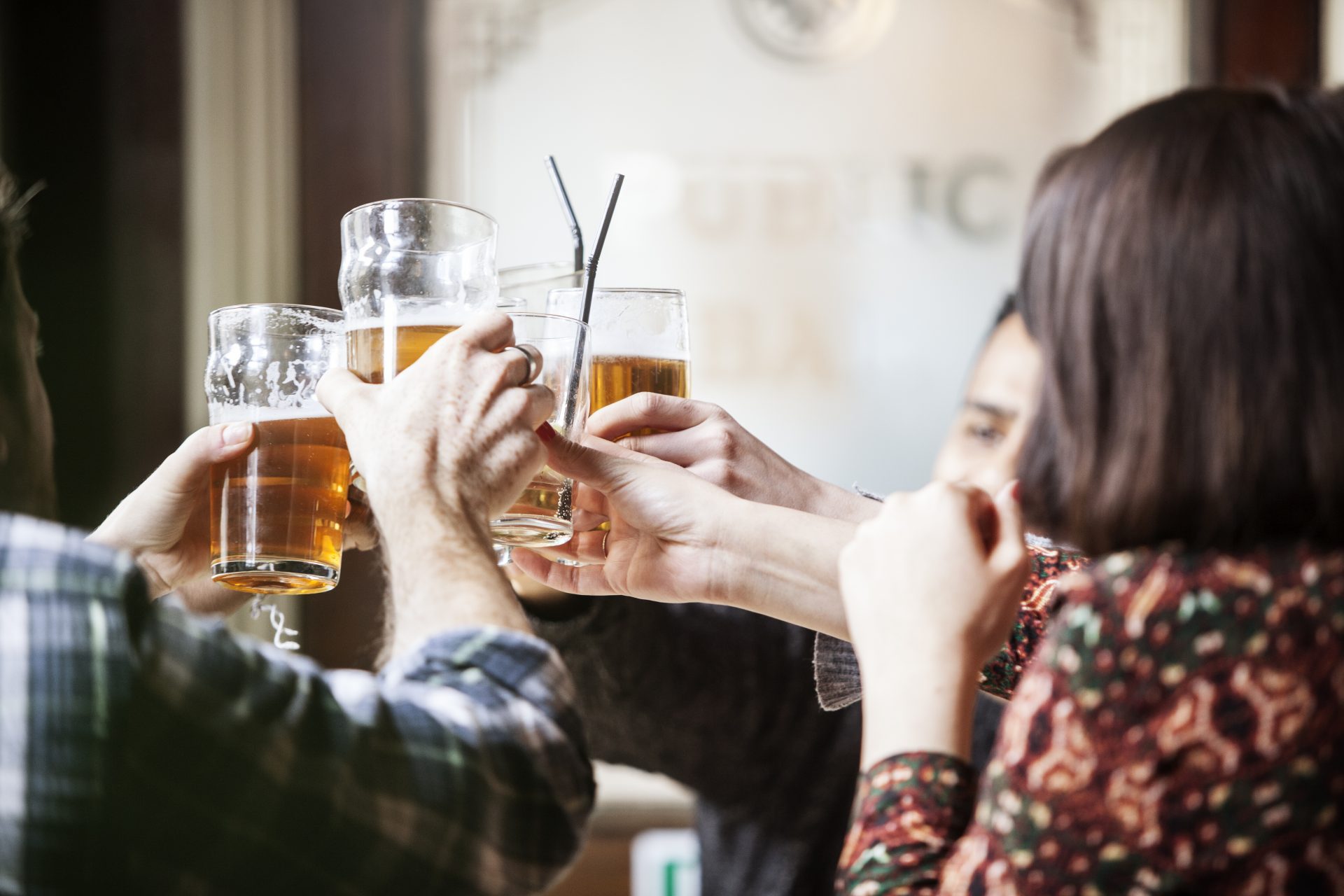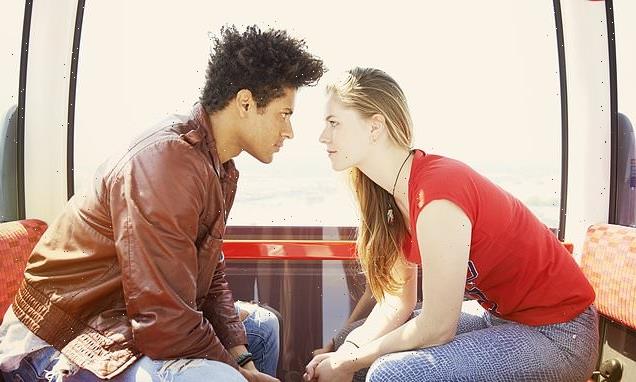Written by Lola Christina Alao
What happens when alcohol starts to creep into how we interact with our friends? Stylist meets the women ditching alcohol and taking up ‘dry socialising’ to save their friendships.
‘Dry socialising’ is a phrase some of us might not be familiar with, but it’s simply doing social activities with friends that don’t involve alcohol. It’s similar to ‘dry dating’, coined by Bumble, which means dating without any booze involved.
Confronted with endless hours of free time and interspersed by stress and anxiety, more and more people turned to alcoholduring the pandemic, drinking far more than they usually would.
In fact, over half of UK drinkers turned to alcohol for mental health reasons during the pandemic, according to charity Alcohol Change UK, while one in three people (29%) have been drinking at high-risk levels (in excess of 14 units per week) over the past six months. Additionally, alcohol-related deaths in the UK increased by 19% compared with the previous year, according to ONS data.
Zoom quizzes and after work virtual drinks lead to a “Why not?” mindset for some, with one too many glasses of wine and homemade cocktails drunk. But what happens when alcohol starts to creep into our friendships and impact them in ways we may regret later?
Iman, 27, initially gave up alcohol for religious reasons. “My parents are from different religions, but both agreed that drinking was a sin and neither of them have touched alcohol their entire lives,” she tells Stylist.
“When I moved out of my mum’s house and gained the freedom I craved, I started drinking a lot more. It went from socially drinking to ‘I need a drink because I’ve had a bad day’ or ‘It’s been a great day.’
“My friends all drank. I work in PR so not drinking feels almost like a crime. A huge part of our job is about getting people to have a good time and drinking was a huge part of that. It felt near impossible to give up drinking. But, lockdown quickly made me realise I didn’t enjoy alcohol and hangovers. I had developed an unhealthy dependency on alcohol. I asked myself often if I was an alcoholic.”
Iman started slowly telling her friends she wanted to quit drinking. Expecting more support, she was initially met with laughs. “I felt a bit hurt,” she says. “I hold my friends very dear and I hope they can support all my decisions. At the moment a few relationships are rocky because some have stopped inviting me to places to avoid the awkwardness of not drinking.”
“Others have welcomed my decision,” adds Iman. “My friends buy me non-alcoholic drinks when we’re out or go out of their way to ensure nobody is trying to force a drink down on me. Their support is everything to me and it’s made it easier to be in social settings. I’m so glad I have such understanding people around me.”
Millie, 30, gave up alcohol in 2018 after she found it was having a negative effect on her mental health andrelationships. “I was a big party girl, and by my mid-20s I really started to notice that alcohol was exacerbating my anxiety and depression and also causing a lot of friction in my relationships,” she tells Stylist. “I was either drinking, working or hungover. I realised none of it was making me happy, so I decided to quit and see if I could change my life.”
When Millie gave her friends the heads-up, they didn’t believe she’d actually go through with it. “Initially my friends were quite ambivalent about the whole thing,” she explains. “I’d previously said I was never drinking again so many times and never stuck to it, so I didn’t blame them. Once they realised I was being serious they became really supportive. I was really honest about my reasoning and this vulnerability bought us closer too, adding a new dynamic to our friendship.”
Millie, who now runs Sober Girl Society (SGS), has found her friendships have only improved since she stopped drinking. “Not only do my friends not have to end the night putting me in an Uber, but I don’t cancel plans because I’m hungover. I’m no longer the flaky friend or the friend people see as their drinking buddy. I have much deeper friendships now that don’t revolve around going out and drinking. My friendship group does more varied activities, which means we’ve created some amazing memories in the last few years – everything from white-water rafting to karaoke.”
“I’ve met so many people since starting SGS that I now have a full support network of my own. I’ve made genuine connections and count some of the people as my very best friends. Meeting like-minded people has helped me on my own sober journey and allowed me to help others with theirs.”
When Laurie was still drinking alcohol, she was struggling with depression and anxiety. “I had bad blackouts and, looking back, was a bit of a nightmare with friends as I could be unreliable and flaky,” she tells Stylist.
In the process of giving up alcohol, although most of her friends were pleased for her, she did lose some friendships on her journey to sobriety. Giving up alcohol can change your friendships, as people adjust to a different ‘you’, but it can make the friendships that do survive stronger as you navigate this new period together.
“Five years on, I think I am closer to my friends than ever, and I have some new sober friends who I love to pieces,” says Laurie. “Without constant hangovers and anxiety, I am able to be a much more present friend and I am a better listener than I was after I’d drunk (a bottle) of wine.”
Janey Lee Grace, a natural wellbeing expert who runs The Sober Club, says friendships can often be affected by alcohol: “There are myriad reasons why women choose to quit drinking alcohol, but for many, it comes after multiple attempts at acknowledging the voice in our head telling us: ‘This isn’t ok, you are meant to care about your health; you want to be able to remember what hurtful words you said to your best friend when you downed the second bottle of prosecco.’
“There is no doubt when you make such a massive change some friendships fall away,” she tells Stylist. “If your interactions were based solely on drinking together, you may find it just naturally falls away, but true friends are super happy for you.”
On making those first steps to going sober and trying to dry socialise, Millie says research is key. “There’s a whole corner of the internet dedicated to the sober curious movement. From books and podcasts to coaches and courses. You wouldn’t try to run a marathon without doing any research whatsoever, so the same applies here.”
“When it comes to socialising there are two ways you can play it. Either by ripping the metaphorical plaster off, diving into your first sober night out and proving it isn’t really that scary or by easing in gently over time – the only person who can decide the right strategy is you. Letting people know that you aren’t drinking before an event is really helpful as it means you won’t need to deal with the uncomfortable questions in person,” Millie suggests.
“By getting it out of the way early with a simple ‘Just so you know, I’m not drinking tonight’ text to the WhatsApp group, you can, in theory, enjoy the rest of the night in peace. Be honest with your friends about why you’re doing this and ask if they can do their best to support you. If you say that you’re on antibiotics or driving, they’re likely to find a reason why you should still have one or two.”
Millie also suggests starting by breaking the challenge down so it doesn’t feel as overwhelming: “Challenge yourself to go for a single hour. If you aren’t enjoying yourself, you can leave after that hour. If you are enjoying yourself then you can stay for another and so on.”
Images: Getty
Source: Read Full Article



